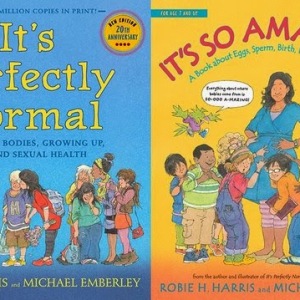As we approach Inauguration Day, it’s tempting to ask how sex ed might be affected by the incoming administration. It’s also tough to call, as sexuality education wasn’t necessarily at the forefront this past campaign season.
Still, Rewire has tried to answer that question, or at least to engage in some well-informed speculation. In her most recent post on the Rewire website, Martha Kempner writes of how funding for various forms of sex ed have shifted over the years, and she then looks at how public policy might shift funding going forward. In the end, she makes the point that a reallocation of federal funding may affect what gets taught from state to state, especially with the possibility that funding for abstinence-only programs could very well increase, while funding for evidence-based programs decreases. Still, such decisions around program adoption get made on the local level and, hopefully, we’ll continue to see an upward trajectory in the gains that have already been made in providing necessary sexuality information to students.
Of course, that consciousness-raising at the local level is something we try to support in any way we can, and there were many presentations at our recent National Sex Ed Conference that hopefully provided inspiration, motivation, and guidance in this area. I myself walked away from the conference with far more knowledge on how to approach education advocacy from a collaborative mindset, versus an adversarial one, something that will likely prove to be an essential skill now more than ever.
In the meantime, the Women’s March is coming up on January 21, in Washington, D.C., and also in other cities on a smaller scale, and Planned Parenthood has joined this effort as a key partner.
“This is an historic moment to come together to protect the progress we’ve made,” Planned Parenthood President Cecile Richards said in a statement. “We will send a strong message to the incoming administration that millions of people across this country are prepared to fight attacks on reproductive health care, abortion services, and access to Planned Parenthood, as they intersect with the rights of young people, people of color, immigrants, and people of all faiths, backgrounds, and incomes.”




